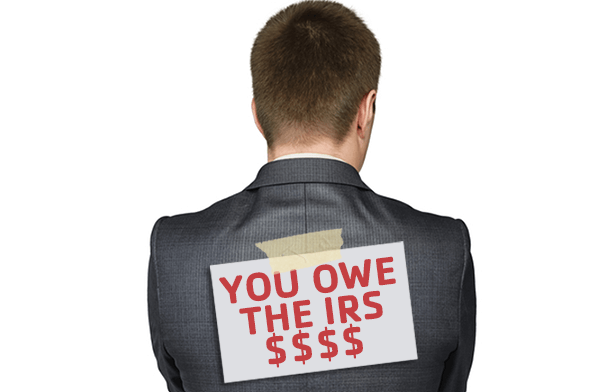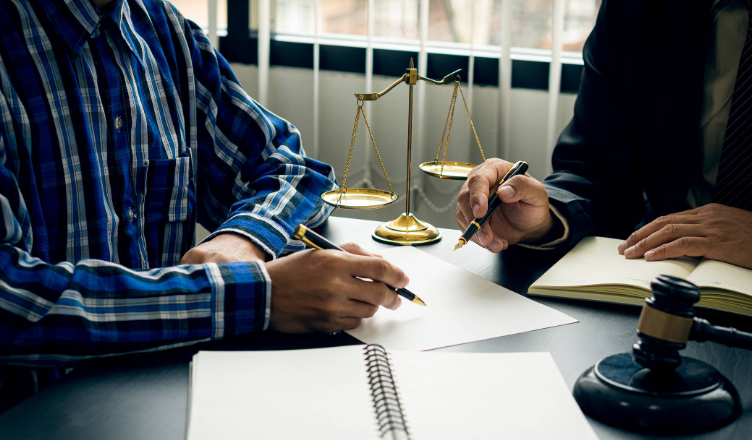
If you find yourself struggling with debt and are looking for relief, you may find that the option that best suits your needs is filing for Chapter 13 bankruptcy. While a bankruptcy attorney can help you find the best debt solution for your specific needs, the following list of pros and cons can help you get a rough idea of if Chapter 13 bankruptcy is right for you.
What Is Chapter 13 Bankruptcy?
This bankruptcy is available for debtors who have debts that fall under a maximum value but also have an income that would allow for regular repayments over a period of time.
Unlike Chapter 7, which discharges your debts outright, Chapter 13 will give you a three to five-year period in which to pay off the debt by way of regular payments. However, after the time period, the remaining unsecured debt is discharged.
Pros and Cons of Chapter 13 Bankruptcy
Declaring bankruptcy is a significant and weighty decision that should not be made hastily. It has far-reaching implications for your future credit, reputation, and self-perception. While it may provide immediate relief from incessant calls and letters, it is crucial to carefully evaluate whether filing for bankruptcy is the right path for you. Moreover, once you have made that determination, it becomes essential to identify the most suitable type of bankruptcy for your specific circumstances.
Before concluding, it is prudent to consider the following list of advantages and disadvantages to determine if Chapter 13 bankruptcy is the optimal choice for you.
This list of Chapter 13 bankruptcy benefits and disadvantages can help you choose the right option.
| Cons of Chapter 13 | Pros of Chapter 13 |
|---|---|
| It takes 5 years to repay your debts in a Chapter 13 plan. | Chapter 13 trustees frequently exhibit flexibility when it comes to payment terms. You may have the opportunity to extend the duration of your debt payments, lower the amount you need to pay each time, or even relinquish ownership of a property you are currently making payments on. Additionally, upon successfully fulfilling a repayment plan under Chapter 13, individual creditors cannot enforce your obligation to make full payment. |
| All debts must be paid using your “disposable income,” which refers to the income that remains after covering essential expenses such as food, shelter, and medical care. Consequently, your surplus funds are effectively tied up throughout the repayment plan period. | You can keep your property while you make payments under the Chapter 13 plan. |
| Your credit report can show a Chapter 13 bankruptcy for up to 10 Years | While a Chapter 13 bankruptcy will be noted on your record, it’s important to note that missed payments, defaults, and repossessions can also negatively impact your credit. Explaining bankruptcy to a prospective lender may prove to be even more challenging. |
| All your credit cards will be lost | It is possible to obtain new credit lines within one to three years after declaring bankruptcy. However, it’s important to note that the interest rates on these new credit lines will be considerably higher. |
| If you do not already have a mortgage, it will be challenging to secure one after declaring bankruptcy. | Some lenders specialize in providing loans to individuals considered “high risk,” but it is unfair to label someone as such solely based on their efforts to overcome financial challenges. |
| If you have previously filed for Chapter 7 bankruptcy within the last six years, you are ineligible to file for Chapter 7 bankruptcy again. | The six-year limit does not apply if you received a Chapter 13 discharge after paying 70% or more of your unsecured debts. |
| Declaring bankruptcy now under Chapter 13 will make it more difficult to declare bankruptcy later under Chapter 7 | Declaring bankruptcy can expedite the process of rebuilding your credit. It’s important to note that Chapter 7 bankruptcy can only be filed once within six years. However, if you encounter another financial crisis before that time, you remain eligible to file for Chapter 7, or you can opt for a Chapter 13 Plan.While you can file for Chapter 13 plans multiple times, it is worth mentioning that each filing will be recorded on your credit report. |
| You still have to pay child and/or alimony support even if you declare bankruptcy | Without a court order, declaring bankruptcy will not release you from your child support and alimony responsibilities. However, it can alleviate many other financial obligations. |
| Student loan debt is not discharged by bankruptcy | It is not possible to eliminate student loans through bankruptcy. However, declaring bankruptcy can help mitigate aggressive collection actions taken by your lenders. |
| You will have to explain your situation to a trustee or judge | Both judges automatically stay, you requested dismissal. |
| Declaring bankruptcy can expedite the process of rebuilding your credit. It’s important to note that Chapter 7 bankruptcy can only be filed once within six years. However, if you encounter another financial crisis before that time, you remain eligible to file for Chapter 7, or you can opt for a Chapter 13 Plan. While you can file for Chapter 13 plans multiple times, it is worth mentioning that each filing will be recorded on your credit report. | Avoid these severe limitations on filing for bankruptcy again by following all court orders, and court rules and not asking for your case to be dismissed when creditors ask for relief from the stop. These limitations are not permanent, even if they apply to you. The six-month period of time that you are prohibited from filing again is the only one. You may want to consult an attorney before filing bankruptcy to limit your future bankruptcy options. |
| Even after the bankruptcy process is over, you may still have to pay certain debts such as mortgage liens. | The amount of debts you can be relieved from by a bankruptcy court is unlimited if you do not owe any money for the types of debts which survive bankruptcy. |
How Does Chapter 13 Bankruptcy Work?
Chapter 13 bankruptcy, which typically lasts for 36 to 60 months, is a repayment program where you propose to the court to pay all or a portion of your outstanding debts to creditors. In most cases, you will only need to pay a portion of your total debt. If your gross annual income is below the state’s median, a 36-month repayment plan is presented to the court. However, if your gross annual income exceeds the median, a 60-month plan is proposed.
Under a Chapter 13 Bankruptcy Plan, you outline the amount you will repay to your creditors and specify the timeframe for repayment. The first payment of the plan is due 30 calendar days after filing for bankruptcy. Once you have completed the repayment plan, any remaining dischargeable debt that was not paid during the plan’s term will be discharged. This means you will no longer bear personal responsibility for those debts.
What Is the Downside of Filing for Bankruptcy?
When considering whether to file for Chapter 13 bankruptcy, it is important to consider certain downsides. This process can be lengthy, have a long-term impact on your credit score, and potentially make it challenging to acquire loans or obtain credit in the future.
How Long Does a Chapter 13 Plan Take to Repay?
You may be required to allocate your disposable income towards repaying your debts. “Disposable income” refers to the funds remaining after covering essential expenses like food, housing, and medical care. Consequently, all additional funds will be tied up for the duration of the repayment plan.
How Long Does Chapter 13 Stay on a Credit Report?
A bankruptcy filing can adversely affect your credit rating for a certain period. Specifically, Chapter 13 bankruptcy will remain on your credit report for 10 years, and it may lead to the loss of your credit cards. Additionally, obtaining a mortgage can become challenging if you don’t already have one.
Furthermore, if you have previously filed for bankruptcy under Chapter 13 within the past 6 years, you will be ineligible to file for Chapter 7 bankruptcy. Declaring bankruptcy under Chapter 13 can complicate the process of filing for Chapter 7 bankruptcy later on. It is also important to note that you cannot file for Chapter 13 bankruptcy if you have had a Chapter 7 or Chapter 13 case dismissed within the last 180 days. This restriction exists because:
- You violated an order of a court,
- You requested dismissal when a creditor sought relief from the automatic stay.
If you have received a Chapter 13 discharge and have made good faith payments of at least 70% towards your unsecured debts, the 6-year prohibition on filing for Chapter 7 bankruptcy does not apply.
It’s important to note that the repayment plan in Chapter 13 bankruptcy addresses certain types of debt, but it does not discharge obligations related to alimony, child support, or student loans. Even after bankruptcy, you may still be required to fulfill certain debts such as mortgage liens.
Contact Tenina Law Today
It is crucial to thoroughly evaluate the advantages and disadvantages of filing for bankruptcy. If you are considering Chapter 13 bankruptcy or would like to consult with an experienced attorney regarding the process, Tenina Law can assist you. Our team can provide the necessary legal advice to help you make informed financial decisions based on your specific circumstances.
You’ll have a better idea of what to do once you weigh the pros and cons of Chapter 13 bankruptcy. You may want to consult an expert first, especially if you’re pressed for time. Speak to an experienced attorney in your area today.







[…] Protection: Chapter 13 uniquely offers a co-debtor stay, which protects co-signers against collection efforts for consumer […]